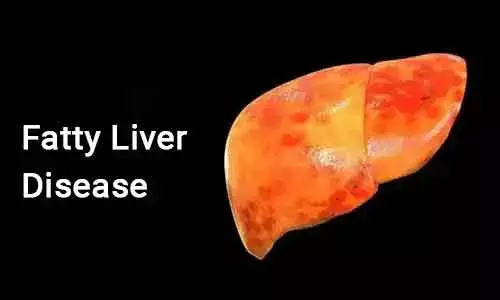- Home
- Medical news & Guidelines
- Anesthesiology
- Cardiology and CTVS
- Critical Care
- Dentistry
- Dermatology
- Diabetes and Endocrinology
- ENT
- Gastroenterology
- Medicine
- Nephrology
- Neurology
- Obstretics-Gynaecology
- Oncology
- Ophthalmology
- Orthopaedics
- Pediatrics-Neonatology
- Psychiatry
- Pulmonology
- Radiology
- Surgery
- Urology
- Laboratory Medicine
- Diet
- Nursing
- Paramedical
- Physiotherapy
- Health news
- Fact Check
- Bone Health Fact Check
- Brain Health Fact Check
- Cancer Related Fact Check
- Child Care Fact Check
- Dental and oral health fact check
- Diabetes and metabolic health fact check
- Diet and Nutrition Fact Check
- Eye and ENT Care Fact Check
- Fitness fact check
- Gut health fact check
- Heart health fact check
- Kidney health fact check
- Medical education fact check
- Men's health fact check
- Respiratory fact check
- Skin and hair care fact check
- Vaccine and Immunization fact check
- Women's health fact check
- AYUSH
- State News
- Andaman and Nicobar Islands
- Andhra Pradesh
- Arunachal Pradesh
- Assam
- Bihar
- Chandigarh
- Chattisgarh
- Dadra and Nagar Haveli
- Daman and Diu
- Delhi
- Goa
- Gujarat
- Haryana
- Himachal Pradesh
- Jammu & Kashmir
- Jharkhand
- Karnataka
- Kerala
- Ladakh
- Lakshadweep
- Madhya Pradesh
- Maharashtra
- Manipur
- Meghalaya
- Mizoram
- Nagaland
- Odisha
- Puducherry
- Punjab
- Rajasthan
- Sikkim
- Tamil Nadu
- Telangana
- Tripura
- Uttar Pradesh
- Uttrakhand
- West Bengal
- Medical Education
- Industry
How excess sugar intake causes fatty liver disease, decode IIT Mandi researchers

A team of researchers from the Indian Institute of Technology (IIT), Mandi has unravelled the molecular mechanism by which excess sugar consumption causes fatty liver disease.
According to the team, the research will prompt the public to reduce sugar intake to stop Non-Alcoholic Fatty Liver Disease (NAFLD) in its early stages.
The research, which comes at a time when the government has included NAFLD in the National Programme for Prevention and Control of Cancer, Diabetes, Cardiovascular Diseases and Stroke (NPCDCS), has been published in the Journal of Biological Chemistry.
NAFLD is a medical condition in which excess fat deposits in the liver. The disease starts silently, with no overt symptoms for as long as two decades. If left untreated, the excess fat can irritate the liver cells, resulting in scarring of the liver (cirrhosis). In advanced cases, it can also lead to liver cancer.
"One of the causes of NAFLD is the overconsumption of sugar -- both table sugar (sucrose) and other forms of carbohydrates. The consumption of excess sugar and carbohydrates causes the liver to convert them into fat through a process called hepatic De Novo Lipogenesis or DNL, which leads to fat accumulation in the liver," said Prosenjit Mondal, associate professor, School of Basic Sciences, IIT Mandi.
"The molecular mechanisms that increase hepatic DNL due to overconsumption of sugar have not been clear. Our goal was to unravel this mechanistic pathway between excessive sugar consumption and onset and development of fatty liver through DNL," he said.
Mondal said the prevalence of NAFLD in India is found in about 9 per cent to 32 per cent of the population. Kerala alone has a prevalence rate of 49 per cent. There is a staggering 60 per cent prevalence rate among obese school-going children.
"Through a complementary experimental approach involving mice models, the team has shown the hitherto unknown link between the carbohydrate-induced activation of a protein complex called NF-κB and increased DNL.
"Our data indicates that the sugar-mediated shuttling of hepatic NF-κB p65 reduces the levels of another protein, sorcin, which in turn activates liver DNL through a cascading biochemical pathway," he said.The research team claimed that unravelling the molecular link between sugar and fat accumulation in the liver is key to developing therapeutics for the disease.
"The team has shown that drugs that can inhibit NF-κB can prevent sugar-induced hepatic fat accumulation. They have also shown that the knockdown of sorcin reduces the lipid-lowering ability of the NF-κB inhibitor," Mondal said.
"From the preventive angle, the IIT Mandi team's research has conclusively shown that excessive sugar intake leads to a fatty liver. This should offer an incentive to the public to reduce sugar intake to stop NAFLD in its early stages," he said.
The other members of the research team include research scholars Vineeth Daniel, Surbhi Dogra, Priya Rawat, Abhinav Choubey from IIT Mandi, Mohan Kamthan and Aiysha Siddiq Khan from Jamia Hamdard Institute and Sangam Rajak from SGPGI, Lucknow.
Hina Zahid Joined Medical Dialogue in 2017 with a passion to work as a Reporter. She coordinates with various national and international journals and association and covers all the stories related to Medical guidelines, Medical Journals, rare medical surgeries as well as all the updates in the medical field. Email: editorial@medicaldialogues.in. Contact no. 011-43720751
Dr Kamal Kant Kohli-MBBS, DTCD- a chest specialist with more than 30 years of practice and a flair for writing clinical articles, Dr Kamal Kant Kohli joined Medical Dialogues as a Chief Editor of Medical News. Besides writing articles, as an editor, he proofreads and verifies all the medical content published on Medical Dialogues including those coming from journals, studies,medical conferences,guidelines etc. Email: drkohli@medicaldialogues.in. Contact no. 011-43720751


